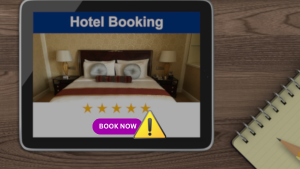I once reviewed a boutique hotel’s website that looked stunning — professional photos, clean layout, intuitive navigation. But the moment I tried to book a room using only a keyboard, the whole thing fell apart. The calendar wouldn’t open. The room options weren’t labeled. And the booking button? Completely inaccessible to screen readers.
If your reservation system blocks users with disabilities, it’s not just a bad experience — it could put your hotel on the receiving end of an ADA complaint.
What the ADA Requires from Hotel Booking Systems
Under the Americans with Disabilities Act, hotels must provide equal access to accommodations, including how those accommodations are reserved online. That means your booking system must work for everyone — including guests with vision, mobility, or cognitive disabilities.
I’ve worked with hotel operators who assumed their third-party booking platform had accessibility covered. But once we tested it, it became clear that basic compliance elements were missing — and their legal risk was growing by the day.
What Makes a Reservation System ADA Accessible?
Here’s what I look for when reviewing hotel websites:
- Can guests navigate the booking system using only a keyboard?
- Are room types and accessibility features described clearly — and in text?
- Is the calendar accessible to screen readers?
- Can assistive tech users complete the process from start to finish without getting stuck?
- Are accessible rooms bookable online the same way as standard rooms?
If the answer to any of these is no, you’re not compliant — and you may be violating the ADA. This isn’t optional. It’s not just about courtesy. It’s the law.
Common Booking Barriers That Lead to Lawsuits
These are the red flags I see most often:
- Drop-down menus that can’t be opened without a mouse
- Room details only shown in popups that screen readers can’t access
- Accessible rooms not clearly marked or available
- Form fields with no labels
- No way to select an accessible room at all
If a guest with a disability can’t book a room the same way as everyone else, or can’t tell what accommodations are available, that’s a violation — and a lawsuit waiting to happen.
What I Tell Hotel Operators
If your reservation system was built without accessibility in mind, you need to fix it — before someone forces the issue. Many of the complaints I’ve defended didn’t come from bad intentions. They came from businesses that didn’t know what their system was hiding.
We work with hotels that want to stay compliant, avoid lawsuits, and serve all guests — not just the ones who can see, hear, or click like everyone else.
If you’re unsure whether your reservation system meets ADA requirements — or you’ve already received a complaint — we can help. Learn more about how our ADA defense law firm protects hotels, or contact us here to talk with us directly.


